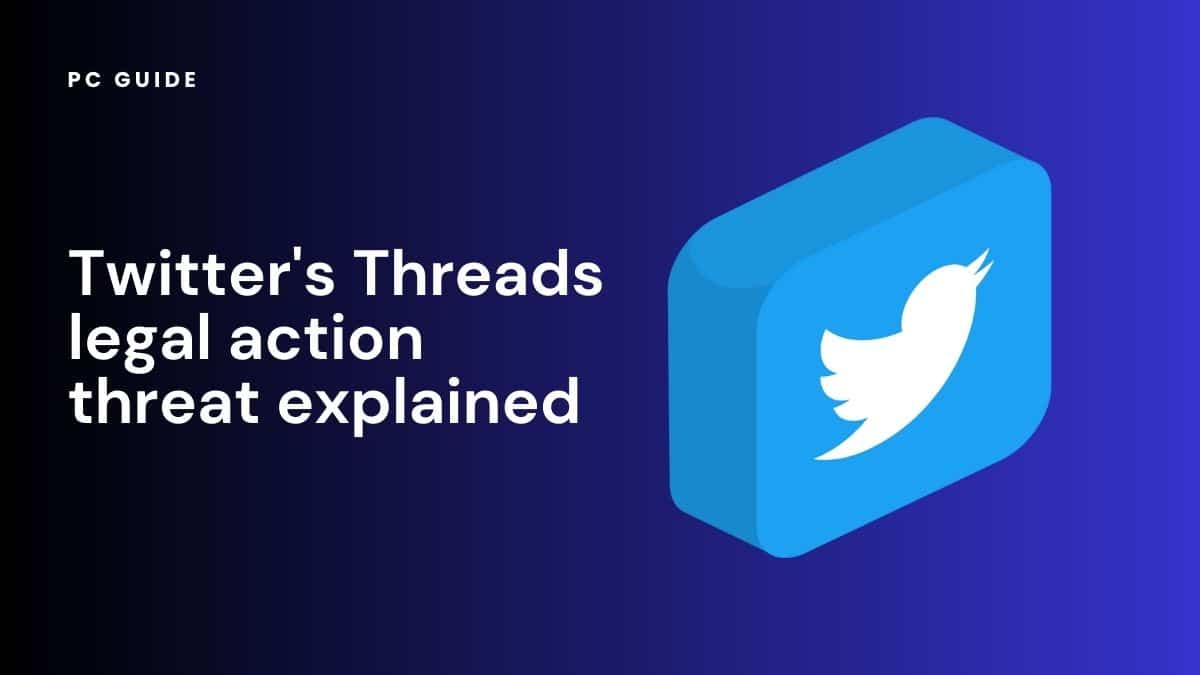Twitter’s Meta Threads legal action threat – explained

Table of Contents
Threads by Instagram is growing at an incredible rate, having launched on Thursday, July 5th. But the new competitor may have had an unfair advantage according to Twitter CEO Elon Musk. So what are the grounds for Twitter’s Threads legal action threat? Let’s explore what we know so far.
Why is Twitter threatening Threads with legal action?
There are at least two key reasons that Twitter Attorney Alex Spiro believes his employer, a staple of the internet since 21 March 2006, has a claim against the new competitor on the block, Threads, an Instagram app. Threads resembles X Corp (successor in interest to Twitter) in so far as they are both text-based social media apps with a vertically scrolling timeline. A certain amount of convergent evolution between social apps can be attributed to the identical goal of optimizing for human psychology. The news feed and reposting functionality are “incredibly similar” says James Clayton of BBC News. This, however, is not what Twitter says they have an issue with.
Prime Day is finally here! Find all the biggest tech and PC deals below.
- Sapphire 11348-03-20G Pulse AMD Radeon™ RX 9070 XT Was $779 Now $739
- AMD Ryzen 7 7800X3D 8-Core, 16-Thread Desktop Processor Was $449 Now $341
- ASUS RTX™ 5060 OC Edition Graphics Card Was $379 Now $339
- LG 77-Inch Class OLED evo AI 4K C5 Series Smart TV Was $3,696 Now $2,796
- Intel® Core™ i7-14700K New Gaming Desktop Was $320.99 Now $274
- Lexar 2TB NM1090 w/HeatSink SSD PCIe Gen5x4 NVMe M.2 Was $281.97 Now $214.98
- Apple Watch Series 10 GPS + Cellular 42mm case Smartwatch Was $499.99 Now $379.99
- ASUS ROG Strix G16 (2025) 16" FHD, RTX 5060 gaming laptop Was $1,499.99 Now $1,274.99
- Apple iPad mini (A17 Pro): Apple Intelligence Was $499.99 Now $379.99
*Prices and savings subject to change. Click through to get the current prices.
Aside from the obvious question “Who came first? Twitter or Threads?”, a seemingly damning juxtaposition of 17 years to 1 day, the first of these reasons is the alleged involvement of ex-Twitter employees in the creation of Threads by Meta.
In a letter (i.e. the Twitter Threads legal threat in question) to Meta Platforms, Spiro voiced concerns that their competitor had “engaged in systematic, willful, and unlawful misappropriation of Twitter’s trade secrets and other intellectual property“. This concern is based on a claim that Threads has hired a number of ex-Twitter employees whom “had and continue to have access to Twitter’s trade secrets and other highly confidential information”.
When was Threads threatened with legal action by Twitter?
The second thing to note is that the launch of Threads comes roughly 3 months after Twitter CEO Elon Musk announced open-sourcing some Twitter code. On March 31st, Twitter made public the code that drives its recommendation algorithm. It had hoped that this “embarrassing” transparency would lead to faster development, simplification, and bug-fixes. Whether this code has been used in any sense to build the recommendation algorithm of its new rival is unknown.
Is Twitter suing Threads?
At the time of writing, it appears that Twitter is exploring the possibility, although no actual legal action has yet taken place.

